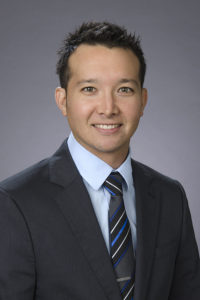
Global health is becoming a driving force in international health, advancing human development, addressing social determinants of health, protecting human rights, promoting shared health security, and even garnering increased attention in foreign policy. Recognizing this growing importance, BMC Public Health is expanding its global health content, and welcomes submissions in a wide range of multidisciplinary areas that coalesce around the research and practice of global health.
To mark this new global health emphasis, Professor Mackey discusses why he became passionate about global health, his research interests, and where he sees the field of global health moving in the 21st century.
What inspired you to become a global health practitioner?

As a child, my earliest memories were those living in foreign countries. Though born in the United States, my childhood was mostly spent living abroad due to my father’s work (who was a civil servant for the U.S. military). This included tours in the Philippines, Greece, Germany, and visiting Japan every year to see my maternal grandparents and relatives. It wasn’t until middle school that I would return to the United States, then experiencing the strange feeling of being a foreigner in my own “home” country.
However, the most profound impact of this experience was how it widened my perspective on the shared challenges we face as a global society and how it taught me that health is a common value that transcends national boundaries. Regardless of the different communities and countries I lived in and visited, all had a longing for the “attainment” of health and wellness, yet many did not have the means to ensure a healthier present or future.
This was especially true when I returned to the United States. We moved back to a community that had radically changed and shifted in socioeconomic demographics. The difference was drastic with our neighborhoods plagued with violence, substance abuse, failing schools, and all the signs of poverty, including lack of healthcare access and poor health outcomes.
This experience led me to a career in global health. I realized that improving population health through research, advocacy, and policy making is something that all communities need, whether it be local or global.
What are your research interests in global health?
My primary research interests are looking at the impact of policy and governance on a variety of domestic and global health issues. This interest reflects my multidisciplinary background, which includes degrees in political science, health policy and law, and a doctorate in Global Public Health. It is also informed by where and the people I have worked with, which includes over 10 years’ experience in the private sector, my current career in academia, and consulting for organizations such as the World Health Organization (“WHO”) and the U.S. Department of State, among others.
The reason why I am so interested in policy and governance is that it impacts everything around us. Global health programs cannot be successful without appropriate governance that enables them to effectuate sustainable change or prevent health emergencies. We are seeing this play out now with widespread scrutiny and calls for reform of the WHO following the 2014 Ebola outbreak, a topic I explore in a recent article published in BMC Infectious Diseases.
Similarly, health interventions cannot be effective unless policy frameworks support their design and implementation. Simply put, if you don’t understand the policy environment, then you may not understand why your public health program, research, or intervention is working or not working, or why it may not be translating to have the desired impact.
Studying policy also allows me to traverse a wide-range of topics and interests in domestic and global health, keeping me both interested and busy at all times. This includes publishing on subjects including pharmaceutical regulation, eHealth, substance abuse, environmental health, drug safety and quality, innovation and intellectual property, infectious diseases, cancer policy, health and migration, health diplomacy, and health corruption.
Where do you see the field of global health moving towards in the 21st century?
The strength of global health and why it represents a field of study that can address our most pressing global challenges (from the threat of infectious disease outbreaks to the impact of climate change on planetary health) is its multidisciplinary nature. Global health should be a “safe space” where all types of stakeholders and disciplines can come together to address complex problems from their own unique perspectives but sharing the same goal of advancing human health and development.
A unifying governance framework that can bring us together towards advancing global health are the United Nations’ Sustainable Development Goals (SDGs), many of which are cross-cutting and encourage partnership among different sectors of global society. For this reason, the journal welcomes submissions that assess key component of the SDGs (including measuring progress to SDG goals, assessing appropriate indicators, and thinking creatively about how the SDGs are a global instrument that can effectuate positive and sustainable change).
Technology can also serve as an agnostic and unifying structure that can address health problems that are borderless. This includes the emergence of eHealth as its own distinct field of study. Hence, we would encourage submissions that look at new digital tools, solutions, methods, and interventions that can improve population health. The potential to leverage eHealth to advance global health are virtually endless, though these technologies need to think about public health as a priority not a secondary outcome.
Finally, we welcome submissions and research addressing global health challenges in low and low-middle-income countries. As a global academic community, we need more visibility to the acute challenges of communities who stand to benefit the most from the promotion of global health.
Comments